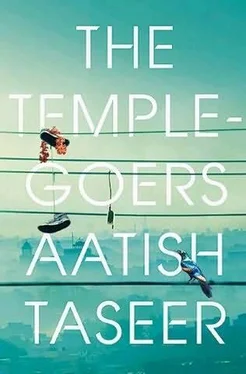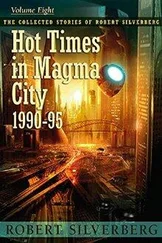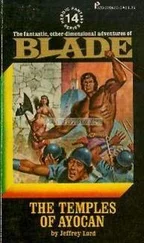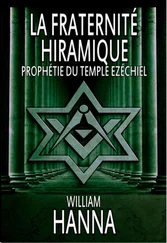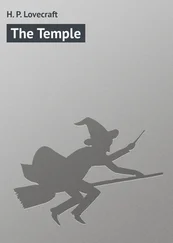‘I see, I see,’ the writer said, now very gently. ‘I see very well what you feel you lack when you see this trainer… Aakash, you said his name was?’
‘Yes.’
‘How difficult it must be for you,’ the writer said, his tone so full of sympathy that I thought he mocked me.
The women had begun to smoke Dunhills. More whisky sodas arrived. Chamunda put her legs up on a footstool and hitched up her sari to her knees, revealing two gold anklets dropping from her dark legs. Her toes, also with fine gold rings on them, fanned forward and back like Sanyogita’s, suggesting deep relaxation.
‘Now stop being so serious, all of you,’ Shabby said.’Let’s have some goss.’
Soon the room was alive again with laughter and chatter, and together with the cheerful gaping face of the electric heater, an atmosphere of such congeniality settled over it that someone entering the room at that moment would never have guessed the seed of fresh discord that had been sown between Chamunda and Shabby, nor the effects that my disclosures would have on its fruit; nobody would have noticed Shabby, who knew Megha’s brother and had once seen Aakash, putting two and two together; no one would have known, once they retired quietly, that the writer and his wife had been there at all; no one would have imagined how in Delhi, a city of fifteen million plus, small, mean motives, and unsettled scores, governed what seemed like large outcomes. No, perhaps all anyone entering the room at that stage of the evening, bringing with them the winter smokiness and the faint, sweet smell of the Alstonia scholaris , might have seen was how Sanyogita’s large, smiling face had shrunk, and the painful, sidelong glances with which she now looked at me from time to time.
A few days later I found myself at dawn on the edge of the old city. Zafar and I had spoken the night before, and to avoid the congestion and crowds of the old city, he had suggested I come very early. He told me to call him for directions when I was near. Once we’d left the Delhi of roundabouts and white bungalows and were on Bahadur Shah Zafar Marg, which, named for the city’s poet-king, connected the old and new cities of Delhi, I tried Zafar’s number. It was dead. And just yesterday his name had flashed on my phone. The city I knew, the familiar city, receded, and in the one we entered the buses in their depot were still of the old type, grey and yellow, torn and rusted at the edges; the split ends of rail tracks were visible under a bridge; and the cold, white haze that hung over the street brought to it the aspect of a tunnel.
Off-duty traffic lights flashed aimlessly through the fog. Our car dived under a red and yellow railway bridge, circled an old city gate with a high-pointed stone arch and came on to a crumbling, colonnaded street. Shuttered shopfronts ate up the covered walkway that ran on either side of the street; the square panes on the second-storey windows were grey and broken; sunken columns showed iron and plaster insides; and an even layer of dust and litter lay strewn over the street. In a peepal’s flat-leaved canopy, like some straggling bird from another season, was a single purple kite.
Normally, we would have had to park and either walk or take a cycle rickshaw. But in these few hours between night and morning, we could drive deep into the old city. The streets closed around us. Nests of black wire hung overhead, buildings leaned and tottered, and the sky became a jagged strip of grey. I was surprised Uttam was still willing to drive. On every surface, dark sleeping bodies wrapped in woollens sprawled with their arms outstretched. A newspaper seller set up shop over an open drain with grey rippling water running in it, a bent sweeper made figures of eight with a tiny, brambly broom and a teashop served its first customers. Now without the crowds and traffic, it was possible to see the full ugliness of the old city. All the old façades had been covered over with cement and bricks, the old doors had been replaced with dust-encrusted metal shutters, and a glimpse every now and then of a slim wooden balcony or a high-pointed arch only increased the sense of irrecoverable ruin.
‘This is Ballimaran,’ Uttam said.
It was a historic quarter; the poet Ghalib had lived a few streets away. It was also all I knew of Zafar’s whereabouts. Uttam became anxious to leave as I tried the number again. The occasional sound of locks opening, shutters going up, water splashing meant the city was waking up; and he had minutes to get out. I let him go and we agreed to meet on the colonnaded street in case I was unable to find Zafar.
I was drawn towards the green doors of the teashop, the smell of its stove filling the street. Rickety wooden benches, smooth with wear, were ranged outside, and nearly half a dozen street cats crouched under them in anticipation of something. I sat down on the bench and considered my options. On the open green doors ahead of me, like an inscription in a book, red Urdu letters instructed: ‘Say not to your prayers that you have work to do, say to your work that you have prayers to read.’ As a final hope, I scanned my mobile’s call register and found Zafar in calls received: Zafar Moradabadi, 19.45. I pressed the green button, the white screen glowed, but this time, instead of failing, the little dots ran across the screen and the number rang. A sleepy girl’s voice answered.
‘Is Zafar Moradabadi there?’ I said excitedly.
‘No, he’s at the office. He sleeps there,’ the voice replied.
‘Office? What office?’
‘The office of Peshraft magazine, on the little baradari, off Ballimaran.’
‘But I’m there now!’
‘Well, so is he. Wake him up. Tell him his daughter gave you permission.’
Clearly blessed with her father’s wit and timing, the girl hung up the phone. I realized now that Zafar had given me two numbers, office and home, of which only the latter worked. I looked up from my bench at the pot-bellied man framed against the white tiles and tube light of the teashop. He was pouring hot, brown liquid between a ladle and a glass. I asked him if he knew where Peshraft ’s offices were.
Without looking up, the teashop owner gestured to a dark, smooth-skinned adolescent who, despite the cold, was in a vest and a blue checked dhoti. ‘Show this man Peshraft ’s offices.’ Then, as an afterthought, he asked, ‘Who are you looking for?’
‘Zafar Moradabadi.’
‘The poet?’
‘Yes,’ I answered, thrilled at the recognition of his name.
The slim boy put on his blue and white rubber chappals, stepped gracefully into the street and led the way without a word. A few paces ahead, past a family of goats moving unsteadily in our direction, he vanished into a pitch-black, medieval passage. The air was stale and musty and a high-pointed arch showed further light ahead. On a wooden table next to us, two men were asleep, their limbs dropping into the darkness. At the end of the passage, the boy followed the curve of the road right. I became aware, now that a strip of sky was visible above, of rainclouds. We came to a raised, pan-stained doorway and a flight of steep whitewashed stairs.
‘ Peshraft ,’ the boy said, his dark, chiselled face and murky eyes holding me.
I gave him ten rupees and he vanished. Climbing the steep stairs of the airless passage, I had little conviction that it would lead to Zafar. There was no landing; the stairs stopped abruptly in front of an old wooden door closed with a hook. I beat against it, and it shook from the hinges. After a moment’s silence, Zafar’s papery voice asked who it was.
‘It’s me!’ I said with delight at having found him in so old-fashioned a way.
The hook fell; the door swung open; Zafar’s gaunt figure greeted me with a wry smile.
Читать дальше
